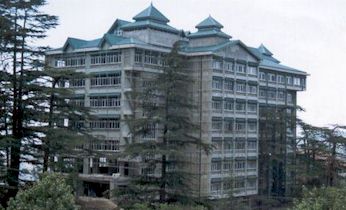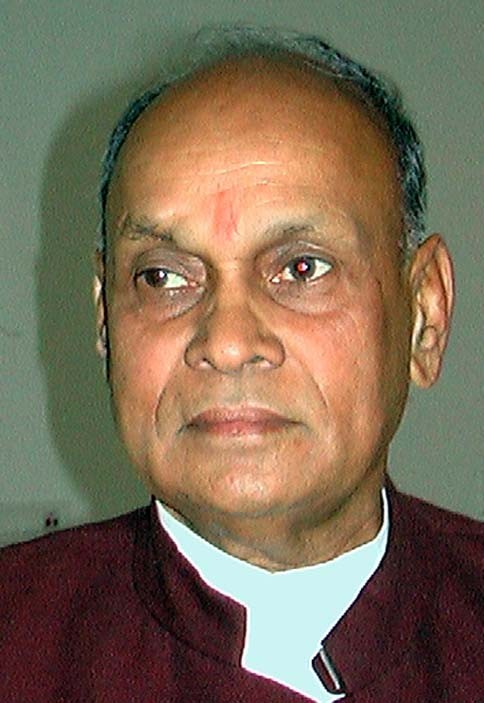Shimla: Striking down the provisional admission process in universities, technical institutions and other institutes of higher learning, the Himachal High Court today issued stern directions to streamline admissions for 2012-13 academic year by only admitting those students in a higher courses who had passed the qualifying exam.
The orders came from the division bench headed by Chief Justice Kurian Joseph and Justice Sanjay Karol in a petition filed by student Khwaja Bahuddin, who has alleged that a private polytechnic institute at Kala Amb had admitted him though he had not passed the matriculation examination.
Having paid all due fees, he was not being assigned a roll number for appearing for the first semester examination to be held soon, the petitioner had let the court know.
During the course of hearing the petition, director higher education submitted before the court that UGC guidelines permitted only those students to be admitted to higher courses who had passed the qualifying examination as on the date of admission.
On learning that an ordinance of the university permitted admissions against the norms prescribed by UGC, the judges decreed, “there must be a uniform cut off date in the State for admission to each higher course. Only such candidates, who have become qualified in having passed the qualifying exam as on the date of admission shall be given admission to higher courses.
“There will be a direction to the Secretary (Education), Govt. of H.P. and the Vice-Chancellors of all the Universities in H.P. to strictly streamline the admission, as above, w.e.f. the academic year 2012-13,†the bench ordered.
Making all universities, including private universities in Himachal as additional respondents in the case, the judges cautioned, “it is made clear that in case any management or any institute for that matter admits any student without the certificate of having passed the qualifying examination, be it may polytechnic colleges, be it may ITI, be it college, the Head of the Institution shall be liable for appropriate action for contempt and also for other permissible action under the law.”
“It is also made clear that in case they are private institute, they shall be deaffiliated/derecognized forthwith,” the judges stern order stated.
With a counsel pointing out that students who did not clear one subject and were placed in the compartment category would loose an year, the judges observed, “It is not a question of a candidate loosing one year. The crucial question is admission of a student with the eligible qualification.â€
In case the candidate has failed, such failed candidates can certainly appear in the next available chance till they pass in all the subjects.
“Admission to higher courses shall only be after passing the qualifying examination,” the judges ordered.
As Editor, Ravinder Makhaik leads a team of media professionals at Hill Post.
Spanning a career of over two decades in mass communication, as a Documentary Filmmaker, TV journalist, Print Media journalist and with Online & Social Media, he brings with him a vast experience. He lives in Shimla.




Like always, it is very good to see good judgments coming from the honorable Himachal High Court. This judgment especially is very important as it has far reaching implications for the student community all over the country.
However, the judgment leaves few things for further discussion and to settle:
Definition of higher course – The judgment refers to higher course. What is/are higher course(s) is open to interpretation. It would be helpful to have uniform legal definition of higher course(s). Whether higher course means one above the present educational level or higher course means a professional course like degree in law or medicine which is a common perception?
This judgment also brings debate of ideal justice Vs. balanced and practical justice.
Compartments and failures are important issues for the students which are tied with the examination and admission to higher courses. A student which gets compartment or fails to appear in the examination due to circumstances beyond their control can’t be just left open to be ineligible for a better chance of higher education in their life.
Students and sometime good students face these situations due to the reasons beyond their control, sickness is one good example. Provisional admission to the next level course in such cases makes perfect sense as it would save significant amount of time for such students. Provisional admission per se is not a bad thing as long as the student can pass the qualifying examination and become eligible to join such courses.
Educational institutions can have a mechanism, understanding and even agreement in place to remove such students in case of their failure to pass the qualifying examination in a stipulated time. This type of arrangement would serve justice to all the parties involved.
Universities and Educational institutions can add these conditions to the rules of eligibility for the higher courses. These common sense solutions don’t have to come from the High Courts or Supreme Court. We should help saving these bodies valuable time if we can let them work on other important things like back logs of cases in the court. These bodies should be left to decide the interpretation of laws and rules there under and or constitutional validities of the framed laws and rules.
Dr. Bhugol Chandel
Any ordinance issued by a university aiming at toning down the minimum educational qualifications laid down by the University Grants Commission for admission to a course should have been declared null and void by the Government or the regulator. In this case, the High Court had to issue stern directives to enforce the rule of law. The institution in question should be de-affiliated after due diligence such that the genuine students are not made to suffer. Incidents like these raise the issue of the higher education regulator to be more vigilant and pro-active to deal with such defective ordinances.